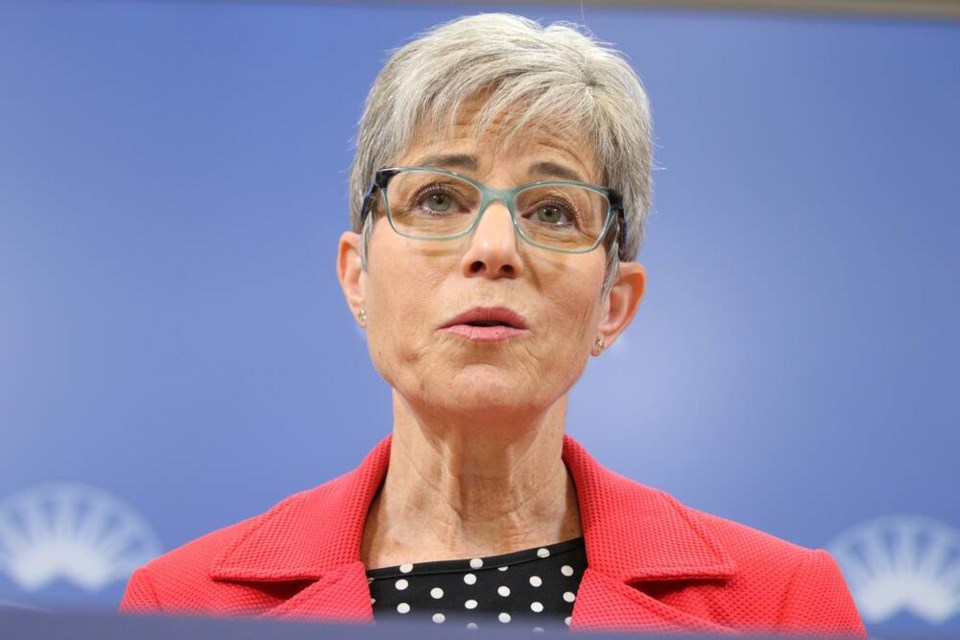There is consternation in the B.C. legislature about Finance Minister Selina Robinson’s bill that refers to a new cooling-off period in which over-pressured home buyers can back out of real estate deals.
Mostly it’s about the fact there is nothing in the skimpy bill about how it’s actually going to work. It just says a buyer will be able to walk away from a deal. All the crucial details about how, when, why and at what cost are missing.
They are airily covered off in a section that says cabinet will figure it all out later and set regulations. That’s led to a number of fuming speeches from opposition MLAs about the NDP’s penchant for sneaking new powers for cabinet past the legislature without specifying exactly what they are.
But there’s a less sinister explanation for why they are adding a significant wrinkle in the process of buying a home without any explanation of how it will work.
They don’t know themselves. They’re winging it. The NDP needs something to show they care about the housing crisis. They floated the idea of a cooling-off period in November. It wasn’t exactly hailed as a game-changer, but it didn’t get shot out of the sky either.
The parliamentary calendar requires lots of lead time, so they dashed off the Property Law Amendment Act as a place holder until they can figure out how it might work. The key thing about the idea is that it was referred to a regulatory agency for study in the same breath it was announced.
The B.C. Finance Services Authority, which regulates the real estate industry among other sectors, was asked to consult with stakeholders and “review other potential consumer protection measures.”
But it’s clear now that it got almost no direction. It has to do more than consult. It has to write the whole thing from scratch.
The referral left Robinson comfortable enough with the progress to say: “With this step we’re moving ahead to protect people and their interests in the real estate market.”
The agency did a quick round of virtual consultation workshops and heard from more than 140 participants. As of Monday, it is still working on the report. The government set a vague deadline of “this spring” for finishing the work.
The terms of the study were quite broad. The B.C. Finance Services Authority was to examine whether current practices adequately protect consumers and the wider public interest “from activities that have been brought forward by concerned citizens.”
Those include blind bidding, where the vendor discloses nothing about competing bids, and unconditional offers, where buyers write an offer without asking for time to inspect the property, or arrange financing.
It is also considering requiring the industry to collect more data on sales to better understand current market practices.
All of which leaves the government — and the legislature — spinning their wheels. The Finance Ministry can do nothing about the cooling-off period or anything else until it gets the report. So MLAs don’t have a clue about what they are enabling by way of the bill they are supposedly scrutinizing.
They are debating a bill that has measures that haven’t been written yet, because they will flow from a report that hasn’t yet been received.
Even Robinson has conceded the bill is not aimed directly at affordability issues. Faced with the need to do something … anything, she focused on consumer protection instead, which is a different topic. Anyone who thinks the cooling-off period is about the real estate market is in for some disappointment.
Apart from the fact the opposition MLAs are flying blind on the details, there are also misgivings about the principles.
Liberal critic Rene Merrifield, whose career is in residential construction, said a cooling-off period could increase prices.
“I don’t know why the NDP is choosing an option that is going to raise prices rather than lower them.
“The wrong tool, the wrong way, creating uncertainty, creating chaos and unknowns. As a result, I’m sure we’re going to have a really long debate on this one.”
B.C. Green Leader Sonia Furstenau said: “This piece of legislation is, actually, spectacular in that it consists of nothing but gaps.”
After a similar “pass-this, details-to-come-later” approach to freedom of information law earlier, and the shutdown of debate on assorted bills last fall, it’s another example of how the NDP will use its majority however it suits them.



